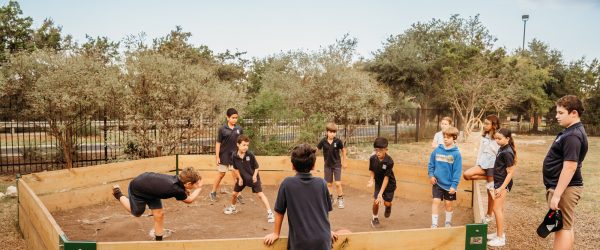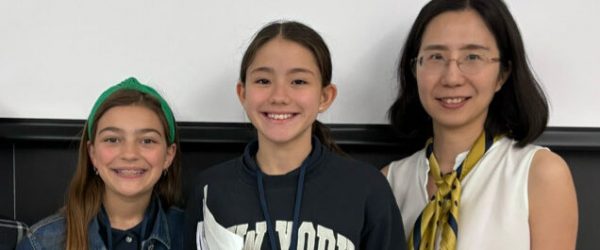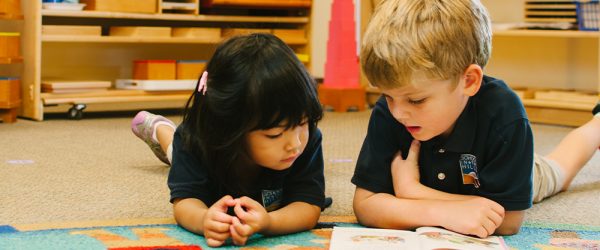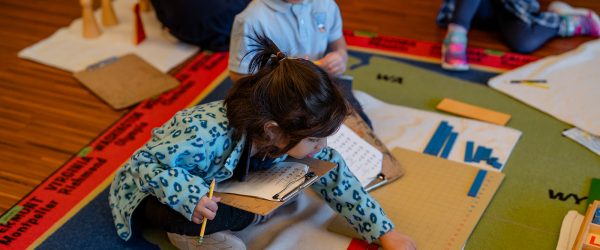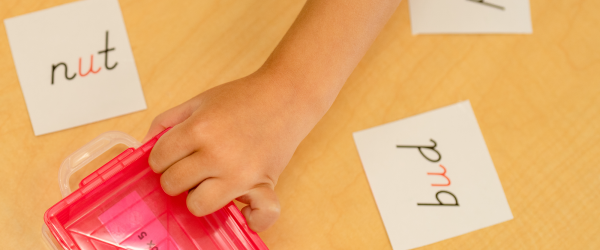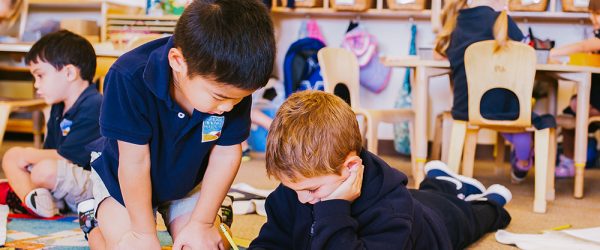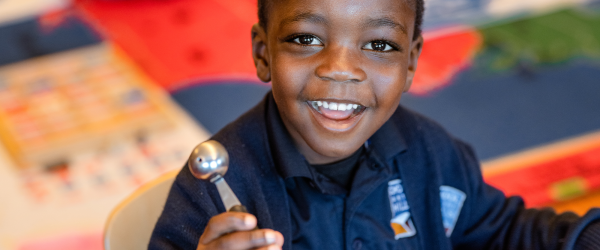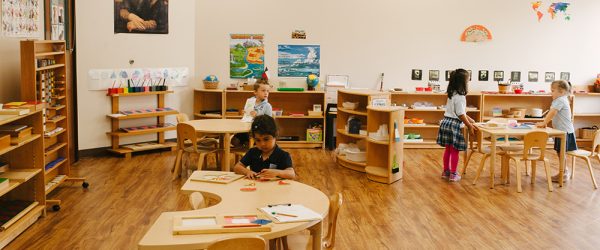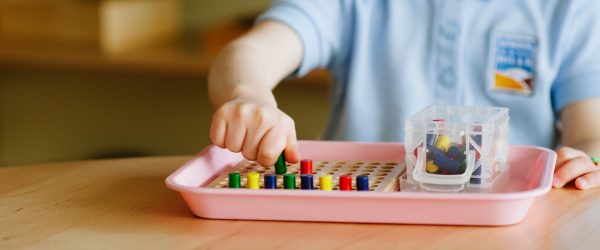If you have ever been in a Montessori classroom, you might be surprised to find the number of children cleaning, washing windows, and pouring different liquid forms. Practical Life can seem strange if we have only been a part of a traditional classroom setting, and by performing these activities, these students are learning.
Dr. Maria Montessori emphasized movement as the foundation of all learning, particularly in the first three years of life. During this sensitive period for movement, children gravitate towards activities that utilize their instincts to participate in the social world around them. Through the social world, children discover how their actions impact themselves and their community. Practical Life activities foster these two main areas of development through the care of self and the care of the environment.
Care of Self
By encouraging children to care for themselves, Montessori is preparing a child to participate in the essential activities expected of them in the future. From pouring water to brushing teeth, a confident child is a productive individual, a necessary part of human culture. By being independent, a child can come to create the context of the “self” and contribute to the community in which they function.
Care of Environment
For students who engage in Practical Life activities, caring for the environment comes as naturally as caring for oneself. By honing a child’s inclination for order, particularly prevalent in the first six years of life, we can help them gain respect. A child is a member of their community not just because of how they behave but also because of how they contribute to the community and show respect. Students contribute to jobs and necessary functions by cleaning up after themselves or caring for plants, among many other essential functions.
Foundation for All Academics
By honing their natural inclination for order and encouraging a child to engage in activities that prepare them for everyday tasks, Montessori is building the foundation and coordination for purposeful knowledge. For example, the practical life activity of pouring water is strengthening the muscles in the hand that holds a pencil. The muscles that control a pencil are called pincer grasp, a vital skill humans acquire and the basis of civilization and all academic functions. This ability to correctly hold objects (i.e., pencil) allows humans to express themselves through language or problem-solving in mathematics.
Beyond pincer grasp, practical life exercises have precise and orderly processes broken down into exact steps. These sequences of events are known as logical processes and are an essential step in building concentration. The inner discipline acquired through these processes helps children continue to engage in academic curriculum and is the basis for all theoretical knowledge.
It helps a child reach their full potential.
Practical Life builds the necessary skills for life. Through care of self and environment, a child learns the necessities of being and the social-emotional regulation to carry out these tasks confidently and purposefully. Montessori builds the human, and through practical life we can assist our students in coming to their full potential.
